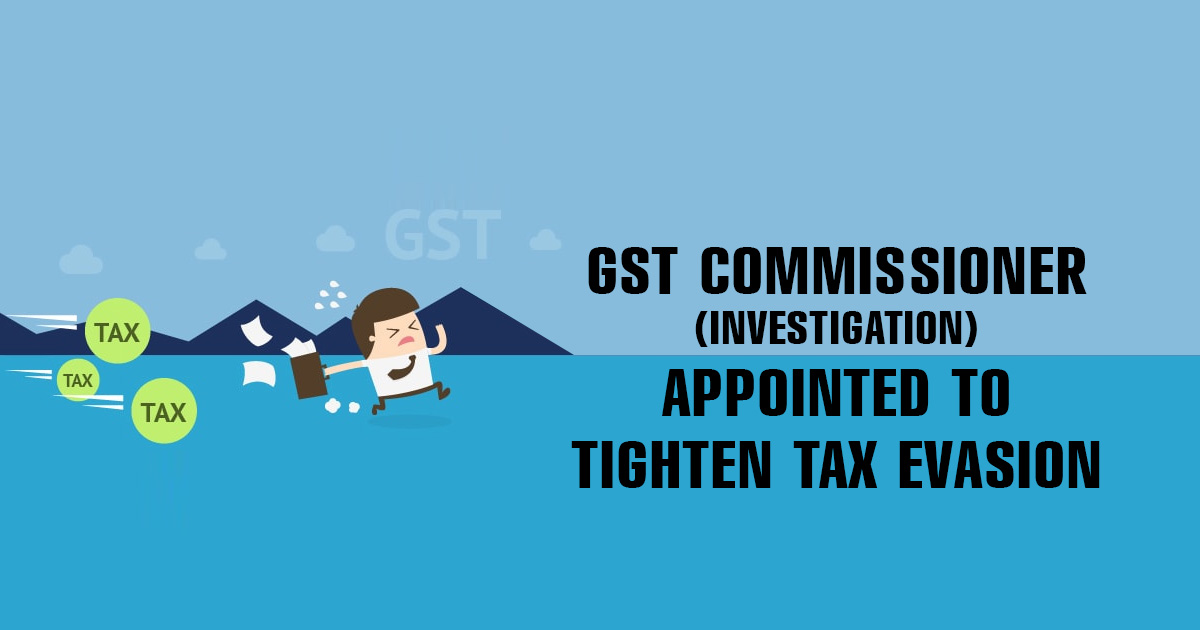The government now looks strict in terms of tax evasion as Commissioner for GST (investigation) has been appointed to get the law enforced and take over the previous tax regime. So far government was not that strict and had given leverage for the law enforcement as the new taxation law was new to the industry and thus the industry was given time for adjustment to the new system.
But now the commissioner has especially been appointed for the law enforcement. He has been given the responsibility to search the defaulters, reach to the issue and then take the corrective action against the defaulter, even arrest.
The Revenue department took this step to raise revenue out of the (Goods and services tax) GST and this could be done only if there is transparency in the Tax payment and by making sure that each and every Taxpayer is paying taxes in time. Thus it is very important to detect out the defaulters, the tax evaders.
The Central Board of Indirect Taxes and Customs (CBIC) instructed that the Commissioner GST (investigation) will have several roles in the context of the judicial matters and the policy issues. Following the GST Act, Excise Act and matters relating to Service Tax, he could do the required investigations and arrests.
During the investigation, search, seizure or arrest, if required, the GST Commissioner (investigation) could monitor the work of the Directorate General of GST Intelligence (DGGSTI) and GST field formations. Neeraj Prasad is the first Commissioner appointed in the office of GST-Investigation.
There will be a coordination between the GST commissioner(investigation), DGGSTI and Directorate General of Analytics and Risk Management (DGARM) in analyzing and spreading intelligence for development. This collaboration is going to act as an agency which would work in collaboration with each other for the enforcement of the GST tax evasion.
Rajat Mohan, partner, AMRG & Associates, in the context of creating a completely new post of the Commissioner (investigation), said that it is evident that the government is now on the front foot for the Tax collection and the enforcement of the taxation law in the country.
Data shows that the GST, which is based on several small taxes, was generalized on July 1, 2017. After that, the Government targeted to collect a revenue of Rs 1 lakh crore monthly but the actual collection has fallen short.
Expectations for the revenue generated through tax collection in the month of April was quite high and the number exceeded 1 lakh crore but in the later months, it has shown a rapid fall.
Read Also: Taxpayers Alert! Soon Tax Department To Match All Tax Data With GST
I.e. Rs 94,016 crore in May, Rs 95,610 crore in June, Rs 96,483 crore in July and Rs 93,960 crore in August.
Lakshmikumaran & Sridharan Partner L Badri Narayanan insisted that this step taken by the government will help in checking the avoidance in trade of goods after import and the Tax department is quite hopeful that the endeavor in this context is going to give positive results in days to come.









